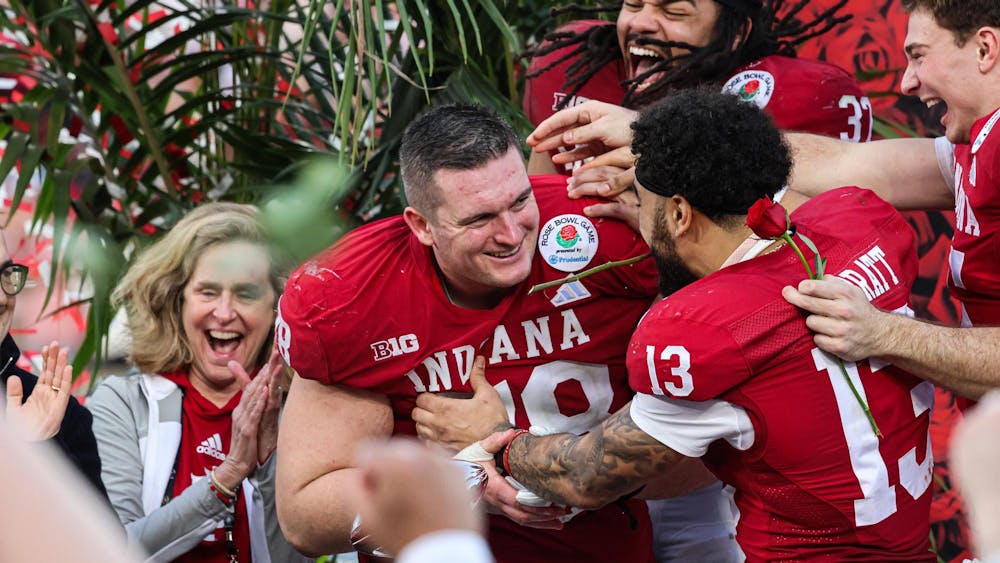Indiana Attorney General Greg Zoeller co-authored a friend-of-the-court brief last week urging the U.S. Supreme Court to modify or overturn its June decision in the case Melendez-Diaz v. Massachusetts, which requires crime lab analysts to appear in court to testify to their results.
The Supreme Court will soon hear a nearly identical case that presents an opportunity to change, overturn or uphold the precedent it set.
The case this summer involved a Massachusetts man, Luis Melendez-Diaz, charged with distributing and trafficking cocaine.
At his trial, prosecutors introduced as evidence a certificate from a state crime lab.
A jury found Melendez-Diaz guilty, and he appealed his case to the Supreme Court, arguing that the use of a document as evidence violated his Sixth Amendment right to confront his accusers.
The Court ruled 5-4 in his favor, saying a lab analyst must appear in court so he or she can be cross-examined.
Briscoe v. Virginia, which is on the court’s docket for Jan. 11, will force the justices to again consider whether using a report from a crime lab as evidence violates the Confrontation Clause.
Zoeller’s brief, which is signed by attorneys general in 24 states and the District of Colombia, says requiring lab technicians to appear in court will create larger backlogs for crime labs and will result in more expensive and time-consuming drug prosecutions.
According to the brief, Melendez “stymies prosecutors and cripples crime labs” and provides defendants with a “procedural advantage unrelated to guilt or innocence.”
It says if Melendez is not overturned, it will wreak havoc on state criminal justice systems.
But directors of two Indiana crime labs said the new rules have not increased their backlogs.
The Indianapolis-Marion County Forensic Service Agency has a backlog of 1,333 forensic cases, of which 900 are in the DNA unit. At the Indiana State Police Department crime lab, which has a larger staff, the DNA backlog is 812.
The Forensic Service Agency has actually analyzed more evidence than it had at the same time last year. Through the end of last month, the lab had completed 11,450 cases, compared to the 9,727 it had completed in October 2008.
Zoeller’s brief argues that lab technicians are not accusatory witnesses and thus are not subject to the Confrontation Clause.
Michael Medler, director of the Marion County Forensic Services Agency, agreed that lab technicians are not accusers.
“We exonerate as many people as we identify,” Medler said. “Lab personnel are not investigatory in nature, they’re part of the system. They are not in the business of putting people in jail.”
But the Court said because lab evidence is often crucial to proving guilt, the defendant must have an opportunity to cross-examine the person who presents that evidence.
Medler said Melendez hasn’t changed much about the way his lab operates. Analysts from his lab have always appeared in court to testify unless the defense attorney stipulated to the results, he said.
What have affected his lab, however, are the stricter requirements about who can testify.
In the past, supervisors in each unit of Medler’s lab reviewed and signed off on technicians’ test results. But under the new precedent, these “technical leaders” cannot testify – the technician who tested the sample must appear in court.
“That can affect the system drastically,” Medler said. “There’s no reason that (technical leaders) can’t testify except through this interpretation of the Confrontation Clause.”
Major Ed Littlejohn, head of the Indiana State Police Laboratory, said his lab had a similar practice of sending “keepers of the record,” to testify. Littlejohn also echoed Zoeller’s brief, saying the new rules may make defense attorneys less likely to stipulate to test results.
Melendez could also have consequences other than those mentioned in Zoeller’s brief.
Medler gave an example of a chemist who worked in his lab that was killed in a car accident. After the Melendez decision, Medler said about 30 of the chemist’s cases had to be re-analyzed so that someone could testify to the results in court.
Medler said this was not particularly burdensome, but it raised an important question: What if a forensic scientist in the DNA unit passed away?
Forensic scientists develop a DNA profile of a suspect based on a tiny amount of genetic material. Medler said sometimes the entire sample is used during a DNA analysis. In that instance, it would be impossible to go back and re-work the case if the scientist who did the original analysis passed away.
Since lab results are often crucial to criminal cases, this raises the question of whether cases like these would be dismissed.
Medler and Littlejohn said they would favor a ruling in Briscoe that allowed technical leaders or keepers of the record to testify.
“We would very much favor that because it’s going to save time and effort, and I personally believe it’s going to give the defendant the same opportunity to ask questions from that person,” Medler said.
Although Indiana labs have not been profoundly affected by Melendez, Zoeller is convinced state criminal justice systems will suffer under the precedent.
“We zealously support the Sixth Amendment protection that all defendants have the constitutional right to confront and cross-examine witnesses,” Zoeller said in a press release.
Indiana attorney general urges court to overturn case
Get stories like this in your inbox
Subscribe





